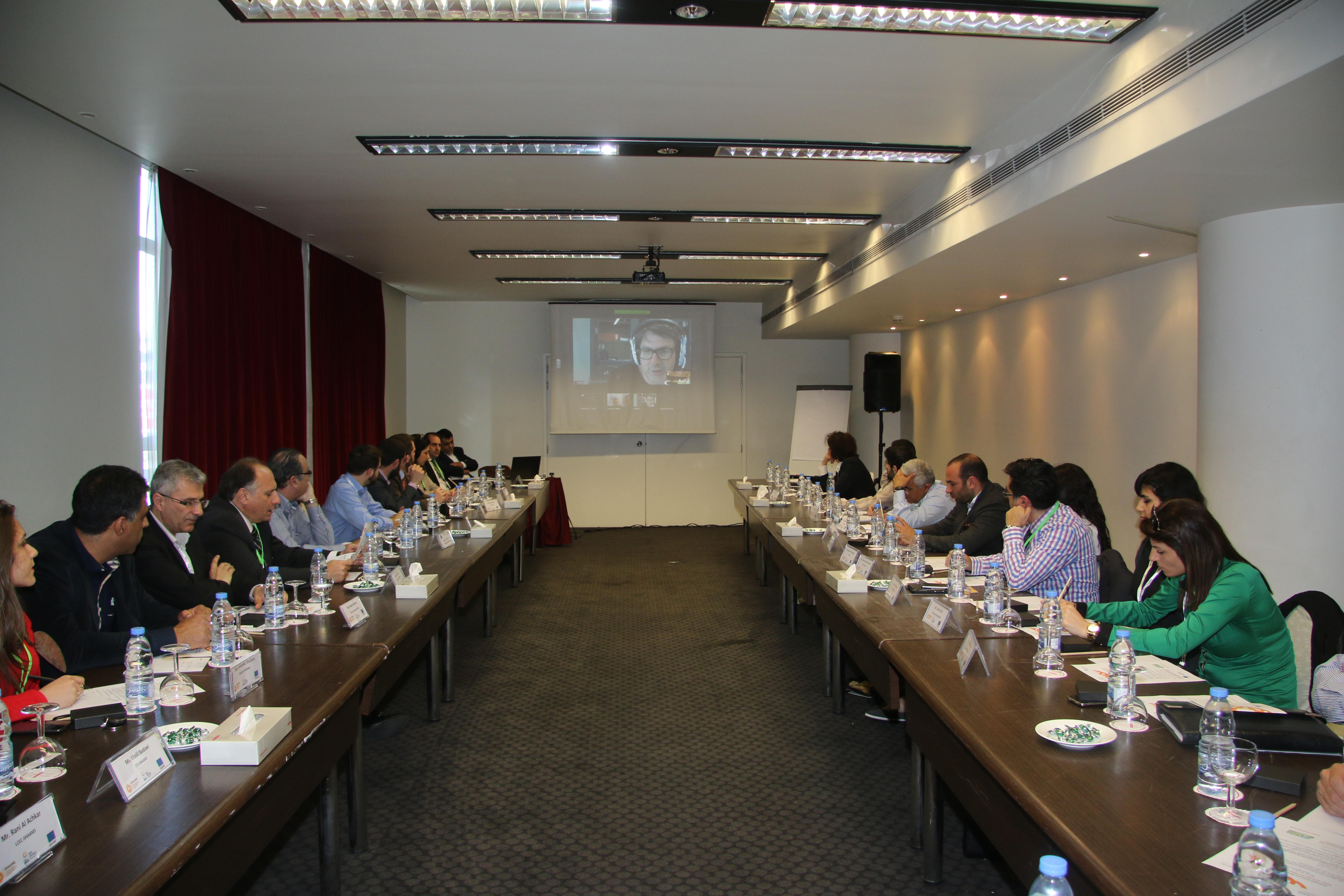.
NEWS



2015-03-20
Solar energy in Lebanon: the way forward
SHAAMS meeting of social actors addresses investment and job creation topics
The civil society is a key player in promoting public awareness about renewable energies and providing the public with compelling examples of their use. In this context, the Chamber of Commerce, Industry and Agriculture of Beirut and Mount Lebanon organized on March 18, 2015, a meeting of social actors, during the annual Build in Green event that was held at Hotel Monroe in Beirut.
The meeting took place in the framework of SHAAMS, a project financed by the ENPI CBC- Med programme aiming at raising awareness about solar energy and supporting the growth of the sector. More than 40 attendees from civil society, public and private sectors discussed the challenges faced by the solar energy market in general, and more technical issues such as storage, financing, and job creation in specific.
During a live web presentation, the Spanish cooperation Som Energia shared its successful experience. The cooperative produces and sells electricity generated from renewable resources, with a non-profit approach. Attendees were taken by the impressive growth rate of the cooperative, which started in 2011 with only 150 members and has more than 23,000 contracts today. Mr. Gijsbert Huijink, current manager of Som Energia, stated that the excellent quality of service offered to their clients as well as the enthusiasm of members accounted in a large way in the success of the initiative.
When dealing with solar energy in Lebanon, professionals have to take into account the specificities of the local market, and more particularly the common reliance on private diesel-based generators. An example of a hybrid installation coupling the photovoltaic system with the gen-set was presented by Mr. Joseph Sadaka from Elements Sun & Wind company. The system, installed in API factory in Zouk, benefits from the NEEREA scheme, and the investment has a pay-back period of less than 6 years. This gives a positive cash flow from the investment even for the first year.
Solar cooling is a technology aiming at transforming solar radiation into energy used for air conditioning. As peak hours often occur on hot sunny days when the air conditioning load is highest, installing a solar cooling system can result in big savings since the system reduces electricity use during peak hours. During the SHAAMS meeting, the solar cooling system installed at the University of Sannio in Italy was presented online by Professor Maurizio Sasso.
Finally, the topic of job creation due in the renewable energies sector was tackled by IECD, a French NGO active in Lebanon for more than 25 years. In coherence with its mission to build a suitable environment for human and economic development, IECD introduced in Lebanon the Electrotechnics technical baccalaureate (BT) a few years ago. This BT is currently instructed in Lebanon in 12 schools.
SHAAMS project cooperates with IECD in order to improve the technical capabilities on the green jobs market. A sustainable training system will be created by integrating courses and practical trainings on photovoltaic systems within the Electrotechnics baccalaureate. This will help improve job market conditions, as solar sector enterprises will find in the market young graduates already trained on the photovoltaic systems.


